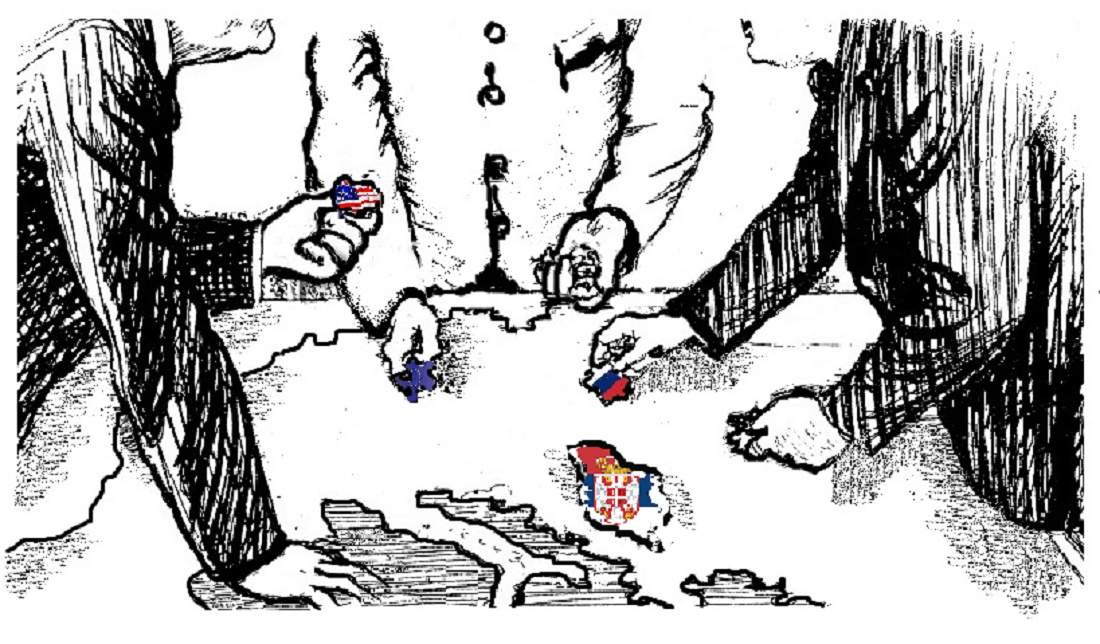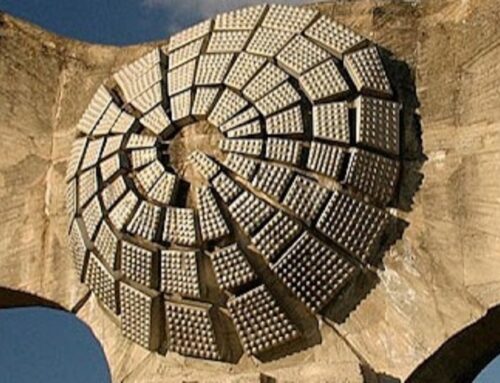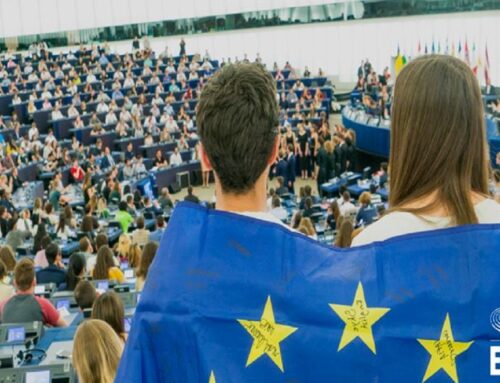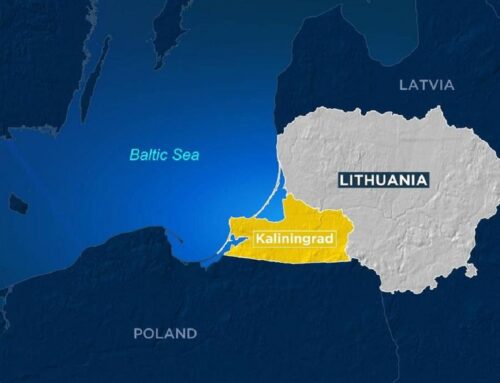On November 3, 2016, Prime Minister of Serbia, Aleksandar Vučić chaired back to a government meeting after sudden cancelling of all his commitments the day before. For the first time since he is leading the government, on Wednesday, November, 2nd, Vučić did not show up in his office at Ulica Nemanjina number 11, in the very center of Belgrade. Serbia’s Prime Minister unexpectedly cancelled also any other commitments and meetings on that same day. Despite suddenly confirmed by Serbian Prime Minister’s media advisor Suzana Vasiljević, the fact was not given further explanations. “You are free to do all the speculations that you want,” she said. This news, firstly released in the online edition of the daily Blic, was immediately echoed by the foreign press. And it was right within these journalistic circles that the first assumptions with the facts of the past few weeks had been made. On Saturday 29 October 2016, in fact, in the neighbourhood of Jajinci, about 10 km away from Serbia’s political kernel, police found a tree trunk filled with an anti-tank rocket, grenades, 100 rounds of ammunition of 7.62 mm, four or five bullets for automatic weapons and 15 bullets of unknown calibre for a sniper rifle. The event, which took place not far from a road area where the Prime Minister is forced to slow down when visiting the family immediately alarmed the authorities. According to the Serbian police being the matter “ideal” for an assassination attempt, for the safety of the Prime Minister, Aleksandar Vučić and his family had been immediately transferred to “a safe location”.
“The finding in this area is of great concern, because right at that point of the road Prime Minister’s vehicle is forced to slow down to its minimum speed thus getting to an ideal distance from such weapons ” spoke out Interior Minister Nebojša Stefanović on that same day. Foreign Minister Ivica Dačić, instead, invited all institutions in charge with the safeguarding of Prime Minister Vučić to increase alertness and that, even by taking into account the latest increasing pressures on Serbia: “Many, in this world, consider the existence of independent countries and leaders, who do not work in anyone’s interest, as a problem, but history has shown how they can always easily find a Serbian arm to complete the dirty job for them ” he said.
Only a few days later, on Tuesday, November 1st, the uncovering of a new weapons cache in a garage of the capital prompted investigators to act with caution. The two weapons supplies – they referred- could, in fact, be linked. According to the Serbian broadcaster “TV Pink”, the car, in which the second quantity of weapons and explosives was found, had been seen on that same Saturday afternoon near the locality where the first quantity of weapons got discovered. In the mentioned vehicle, a stolen Renault Megane, police recovered 400 grams of TNT, two mobile phones to be used for potential remote controlled explosions, guns and ammunition.
According to local media and press, there were also growing fears for the safety of Aleksandar Vučić’s brother. Serbia’s Interior Minister said Prime Minister Vučić suspects his brother Andrej may being the real target of those failed attacks “whose traces” have been found in recent days. The Minister referred to the weapons found around Belgrade and reported the existence of “professionals” among the 37 suspects questioned by Serbian police authorities on the dangerous uncovering. Tensions in Belgrade grew further when press and media services announced the quick evacuation of Air Serbia headquarters due to bomb threat, on Wednesday, November 2nd. According to reports from RTS, the employees of the national airline had been evacuated from their headquarters in Novi Beograd after the disclosure of a bomb in the building. As the checks promptly operated by the bomb squads ended without findings, Air Serbia employees were then allowed to return to their jobs. In the light of all these events, including the latter at Air Serbia, State bodies were no longer allowed to divulge information about the weapons finds occurred near the house of the Prime Minister in Jajinci on Saturday 29 October and in the district of Novi Beograd the following days. The decision, taken by the Serbian Premier Aleksandar Vučić in person, related to all the organs of State in charge of the security of the Prime Minister, including the Interior Ministry and the military and civilian security services.
While the Serbian leader feared for his safety and proclaimed the news blackout for all of his own security organs, in other environments, a non-stop chatter flow continued to grow fed by what might turn out to be the meeting of more or less truthful assumptions. To be questioned, this time, was nothing the less but the effective reliability of that Serbian Intelligence close to Vučić, so capable of discovering as so unable to prevent. Voices spoke of a certain climate of distrust within the upper echelons of the Ministerial circles where, according to the leaks, Serbian Prime Minister’s latter distrust of certain intelligence subjects quickly reflected in the latest press speculation seeing Aleksandar Vučić as considering the renewal of Serbia’s heads of the intelligence services at BIA, VBA and VOA (the Serbian Intelligence Agencies). But this is just one out of the many potential readings available on this thorny matter. In this era of voracious mass media and active tabloid programs, in fact, neither Serbia is lacking for the conspiracy theory, with its Premier under the attack of some hostile elements belonging right to those secret services that should watch over him. Theories aside, the issue concerning Serbia’s Prime Minister’s security is very delicate and, once again, does not refer only to this small Balkan country but rather, perfectly reflects the status of a puzzled international context hanging in the balance. And while Moscow is trying to get closer to all the Slavic countries of the Balkans playing the card of the “commercial diplomacy“, it is right in Serbia that the Pan-Slav fraternal bonds seem to have greater impact. Serbia is interested to join the EU, but not at the expense of its relations with Russia, had said in April 2016, Foreign Minister of Serbia Ivica Dačić at a joint press conference with his Russian counterpart Sergei Lavrov, where he was adept at remembering the role of his country in other arenas: “Serbia implements a policy of military neutrality and does not intend to join NATO” – he remarked.
Well, they didn’t feel the same way in Montenegro, where on December 2nd, 2015, with the invitation made by the Ministers of Foreign Affairs of the Atlantic Alliance, the negotiations for future accession to the NATO were officially undertaken. And as the Prime Minister of Montenegro Milo Đukanović referred to this event as to a historic day in the life of his country, Moscow expressed its opposition through the statements of Dmitry Peskov, who indicated the latter expansion of NATO in Eastern Europe as a “mistake and a provocation” towards Russia’s diplomatic interests. On that occasion, spoke also the Defence Committee Chairman of the Russian Senate Vicktor Ozerov who declared how the Montenegrin inclusion in the North Atlantic Treaty would make many previously realized programs with Russia impossible, even in the field of military cooperation.
Moscow, however, has wasted no time and turned to Serbia, the last bulwark of the Russian influence in the Balkans. So, while in Montenegro from October 31, 2016 to November 4, 2016 the first NATO military training got underway – as prelude to the official NATO entry of the small Balkan country scheduled for mid-2017 – in the Serbian region east of Belgrade, Russian troops took part in a war exercise with Serbia and Belarus. Sea battles and chemical attacks which involved 680 unarmed people from seven NATO countries and ten states partners in Montenegro. 150 Russian paratroopers, 50 members of aviation staff, three transport planes and an unspecified number of soldiers from Serbia and Belarus in Serbia: a clear expression of the different strategic directions taken by the two neighboring Balkan countries. A close range confrontation between Russia and the Atlantic Alliance, it is said. But of course, there is nothing official. Just suppositions. It remains the fact that, though militarily talking the two events might look marginal, from a geopolitical point of view they are of a great importance. In this sense, quite central were also the parliamentary elections in Montenegro on October 16 last, which – with the victory Prime Minister Đukanović – have seen this trend as further accelerated, thus giving a signal to the international community. But elections in Montenegro meant much more. On that same day, in fact, media and press reported how police and services of the Montenegrin capital Podgorica had thwarted a subversive plan of alleged Serbian extremists to kidnap Đukanović and lead to armed clashes. Serb extremists: maybe the same who targeted also the Serbian reformist Prime Minister Aleksandar Vučić. The plots of the two countries are dense. And there are speculations that also see a potential involvement of the Kremlin in the alleged coup to Đukanović. Moscow was also up in its arms after Podgorica had accepted the sanctions against Russia following the Ukraine crisis, in 2014.
Moscow, however, denies any involvement in the attempted coup in Montenegro which foresaw the murder of Milo Đukanović, leader of the Democratic Party and through the Kremlin spokesman Dmitry Peshkov, on Monday November 7, 2016, categorically rejected any possibility of official involvement in the organizing of such illegal actions, reported Interfax.
In the meantime, however, a newspaper of the Serbian capital wrote that Patrushev, the Secretary of Russia’s Security Council, has left Belgrade with three more people in his entourage and leaks spoke of the alleged Russians involved in the events above. Nikolai Patrushev was officially in Serbia for the signing of a memorandum of cooperation with the Ministry of the Interior.
Playing on the European structural weakness, the last two years Belgrade has managed to resist the pressure to join the sanctions policy against Russia, claiming a foreign policy autonomy, which many countries do not look kindly on. And this refers not only to Europe. The role of “buffer state” that is pushing back on Serbia conceals a dense web of characters and roles are not always readily identifiable.
Remains a fact that – as Serbian leaders spoke out – “for his great design of renewal and reform, Aleksandar Vučić has enemies in multiple locations, heterogeneous enemies but […] ready to unite to stop him and stop his desire to close with the past.”





Leave A Comment